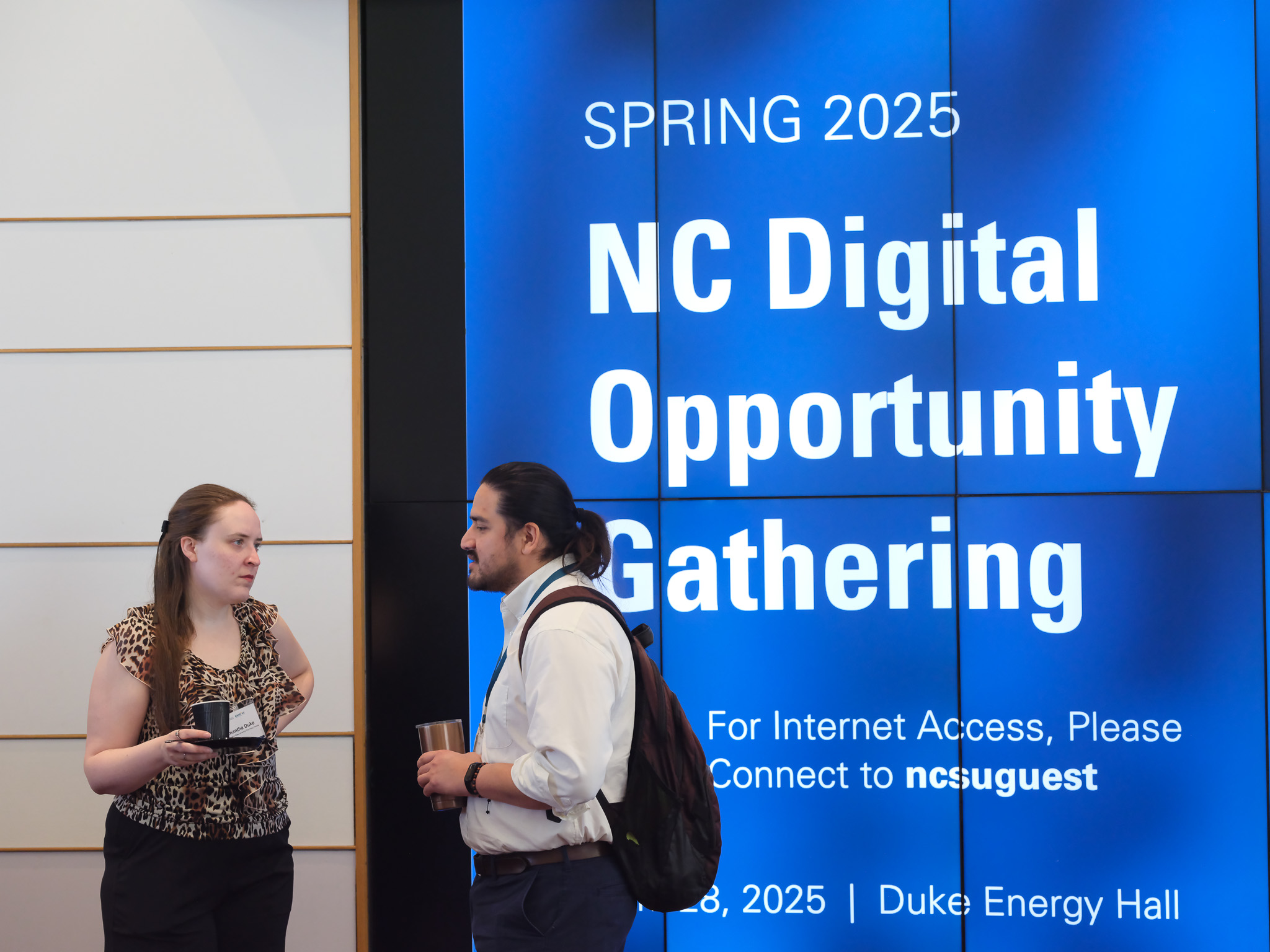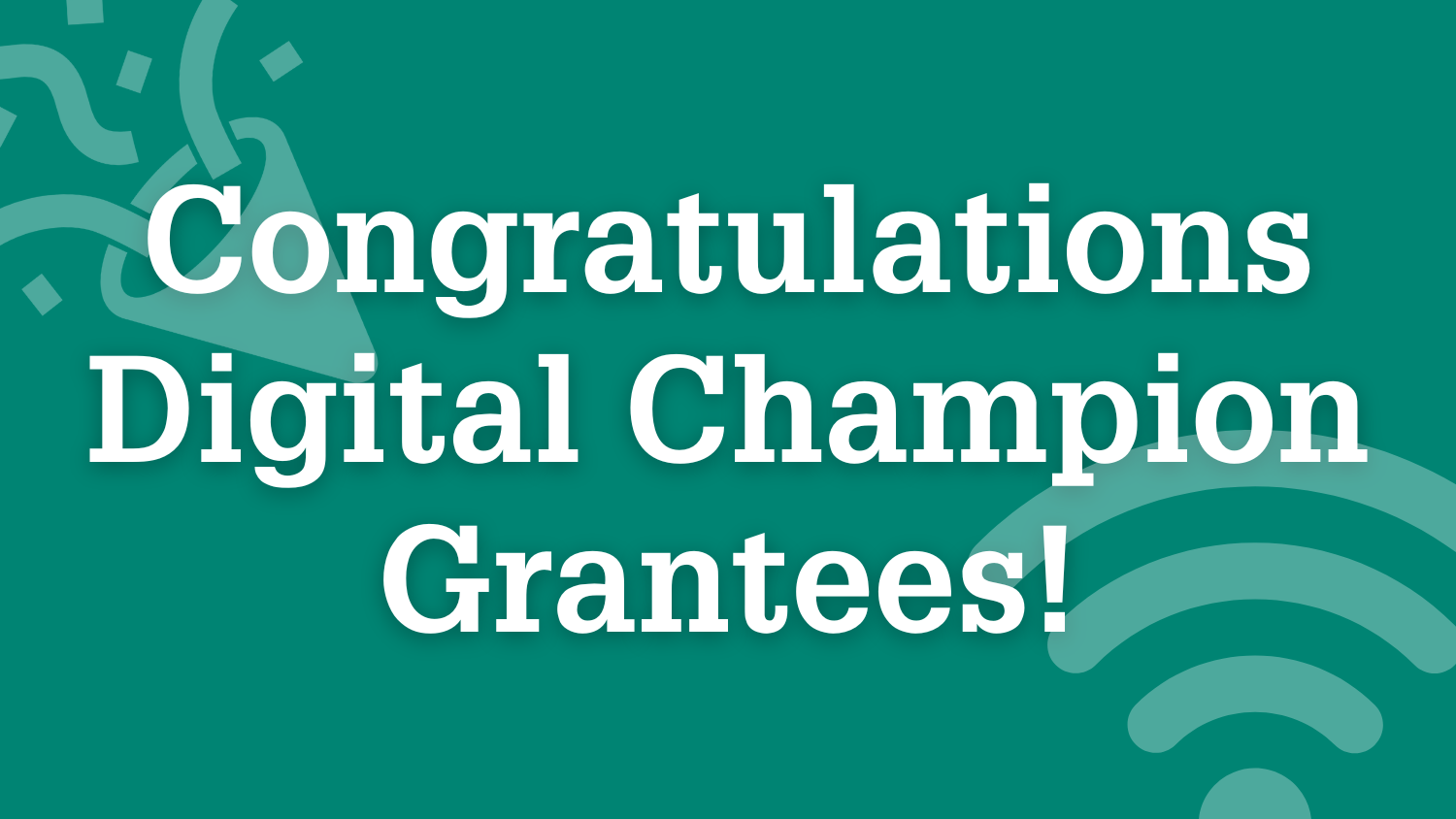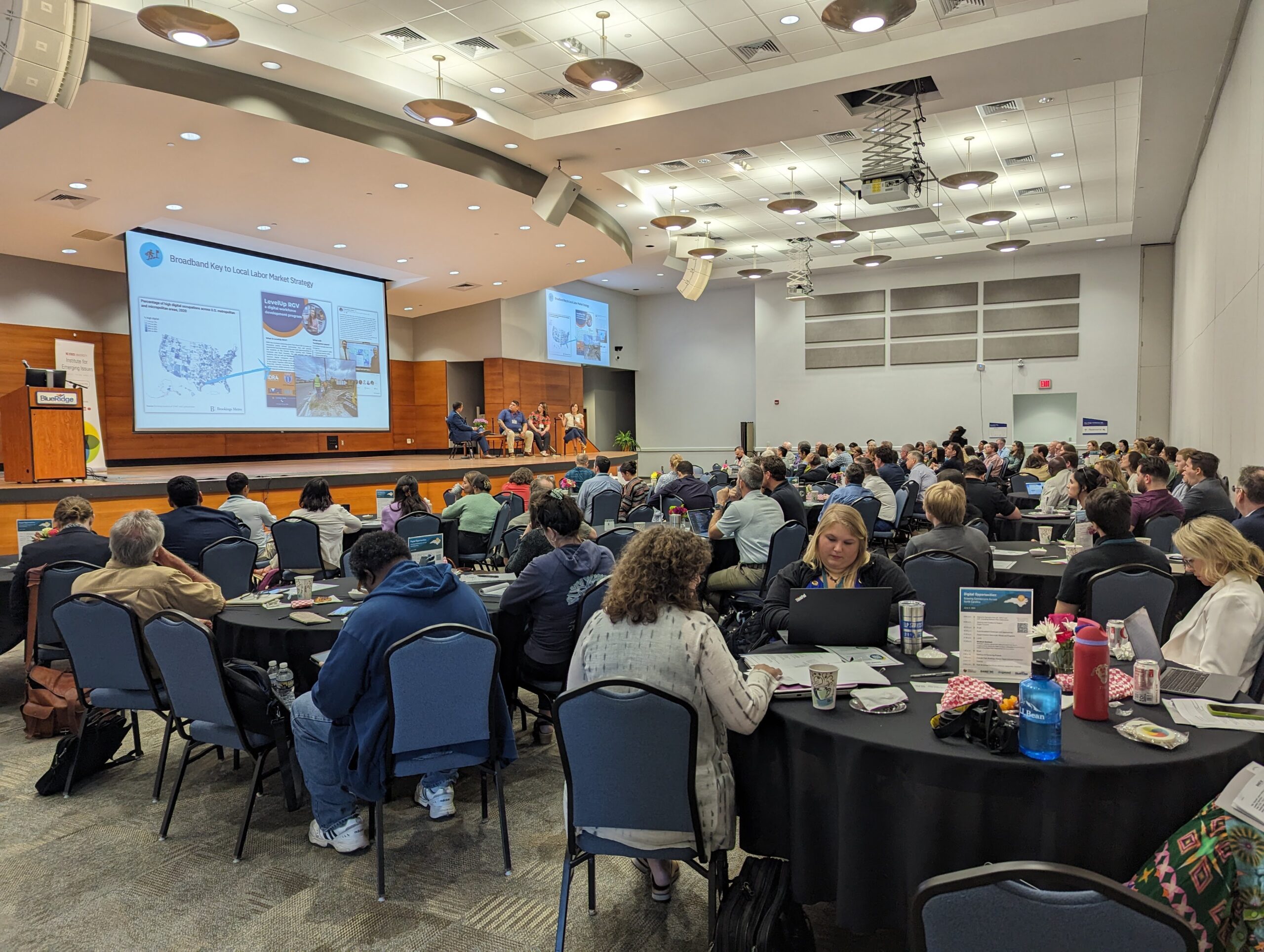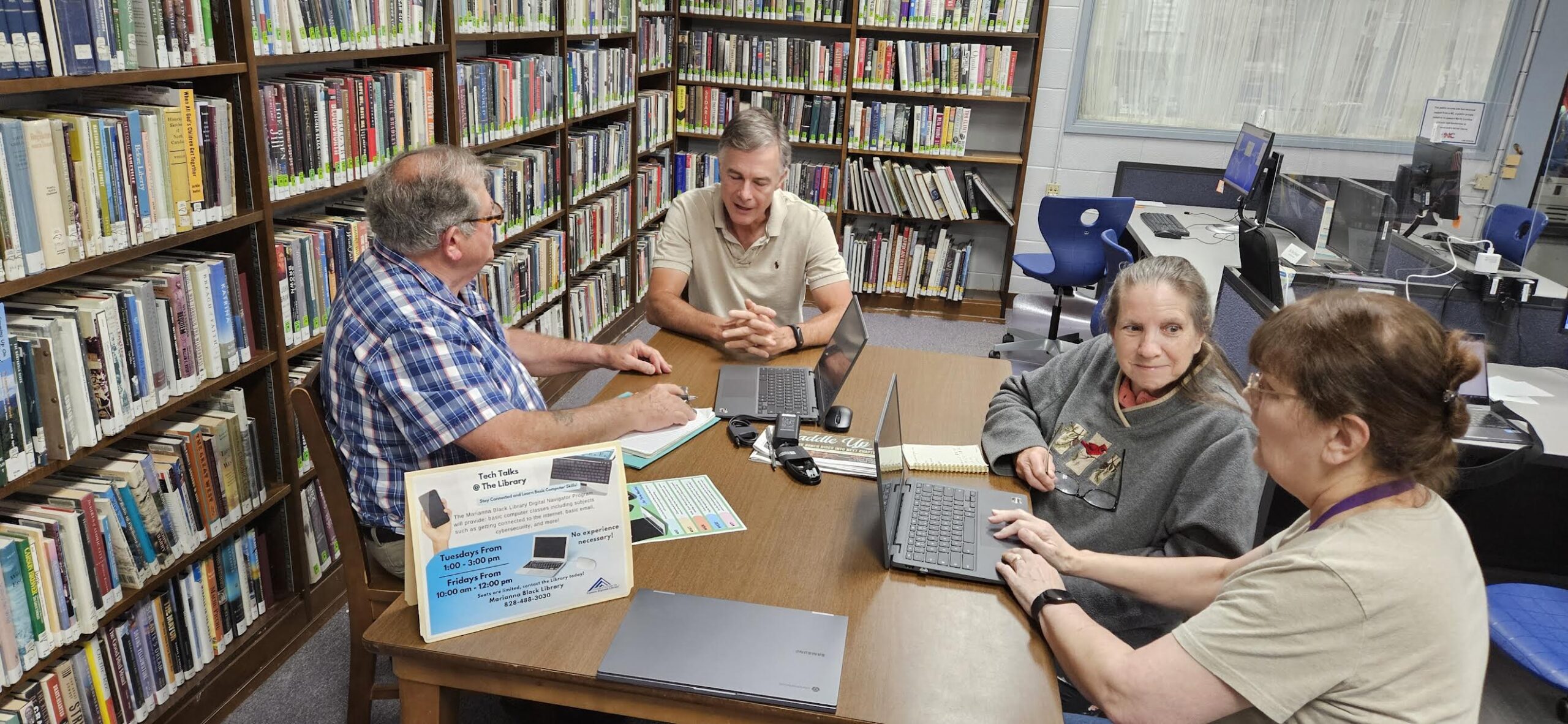A Family Reunion: Spring 2025 NC Digital Opportunity Gathering Recap

On Monday, April 28, the Institute for Emerging Issues (IEI) BAND-NC program and the N.C. Department of Information Technology (NCDIT) Office of Digital Opportunity welcomed more than 220 participants from 57 North Carolina counties at the Spring 2025 Digital Opportunity Gathering for a day of connection and learning. The event, dubbed a “Family Reunion” by multiple attendees, was the first of three upcoming collaborative events between IEI and NCDIT.
These convenings intend to create spaces for learning and connection for anyone involved in digital opportunity work in North Carolina–whether individuals are new to the field or have been doing the work for decades, or have an entire job related to digital opportunity or just one part. We have the wonderful opportunity to learn from each other and continue to grow our robust digital support ecosystem.
We were blown away by the breadth of the attendees’ expertise. From local and regional governments to digital navigators working side by side with their community members, digital opportunity work intersects with all sectors and aspects of life.
I appreciated that there were so many “experts” from different backgrounds and experiences who would share their knowledge with anyone who asked. – Attendee
The Gathering began in the IEI Commons at Hunt Library with a light breakfast, conversation and a lot of hugs. IEI Director Sarah Hall kicked off the day with remarks about the five-year progress of the BAND-NC program. What started as an IEI ReConnect NC Forum, BAND-NC has evolved into a year-round program that offers technical assistance, training, funding and convening opportunities, such as this one, across the state. Over the past five years, BAND-NC has provided more than $3 million in direct funding to local and regional governments and nonprofits to support rapid responses to the COVID-19 pandemic, develop local-level digital opportunity plans, and implement digital access programs.
Next, we were thrilled to have NCDIT Deputy Secretary Annette Taylor greet attendees with a reminder of the ways the Office of Digital Opportunity wants to continue to support practitioners. She also introduced a welcome video from NCDIT’s Secretary and State Chief Information Officer Teena Piccione. Deputy Director Maggie Woods set the stage for the day by describing how we can meet the need for digital opportunity in North Carolina through connection, collaboration and sustainability. See the full agenda.
The morning sessions included six topical presentations from experts on the ground, covering device ownership, tech accessibility, measuring program impacts and more. The afternoon sessions focused on networking around specific topics like telehealth access, workforce development and more. Each session started with “lightning talks,” practitioners sharing program overviews or best practices to kick off engaging small group discussions.
The networking was strong throughout the day, with frequent breaks to connect with others and our tabling partners: NC Assistive Technology Program, NC 211/United Way, NCDIT Tech Resource Finder, Institute for Emerging Issues, and Cooperative Extension’s Digital Skill Educators. Our partners at Cooperative Extension wrote an incredible article about our time together- check it out here!
The tone throughout the event was positive and encouraging. The conversations fostered a sense of community in which attendees were able to relate to each other. When discussing challenges we leaned on our experiences to offer solutions and brainstorm new approaches. – Attendee
Brookings Institution Center for Technology Innovation Director Dr. Nicol Turner Lee closed out the event with a meaningful keynote. Dr. Turner Lee told the stories of individuals she met during her research for her latest book, Digitally Invisible: How the Internet Is Creating the New Underclass. Sharing these stories grounded us in “the why” of our work with our own communities. She ended by inviting us all to write a commitment – large or small – to digital opportunity work as a touchstone to revisit.
Whether you attended the event or not, this is a powerful exercise. So I invite readers to ask themselves: “What is a commitment to this work?”
We look forward to seeing you at a future reunion – all are welcome!
- Categories:


